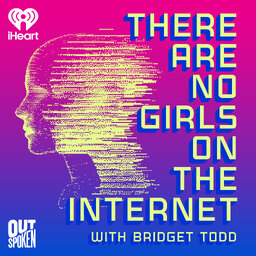Uvalde school shooter had a history of threatening girls online
We don’t take online threats against women and girls seriously and it has big consequences
https://www.washingtonpost.com/technology/2022/05/28/uvalde-texas-gunman-online-threats/
Join our newsletter: Tangoti.com/newsletter
Want to support the show? (thank you!)
Subscribe, tell a friend, leave a review, or buy some merch at There Are No Girls on the Internet’s store: TANGOTI.COM/STORE
Say hello at hello@tangoti.com
In 1 playlist(s)
There Are No Girls on the Internet
Marginalized voices have always been at the forefront of the internet, yet our stories often go over…Social links
Follow podcast
Recent clips

BAFTAs racial slur; Nicki Minaj bot network; TikTok “Psychic” faces Defamation trial for University of Idaho murders – NEWS ROUNDUP!
1:16:39

A TANGOTI Announcement We've Been Sitting On
47:34

Chris Pratt Is Hawking an Anti-Abortion Prayer App; Elon's Grok Is Doxxing Women; DOGE Bros Let ChatGPT Do Their Job; Trump’s Big DEI Loss – NEWS ROUNDUP
1:07:04
 There Are No Girls on the Internet
There Are No Girls on the Internet